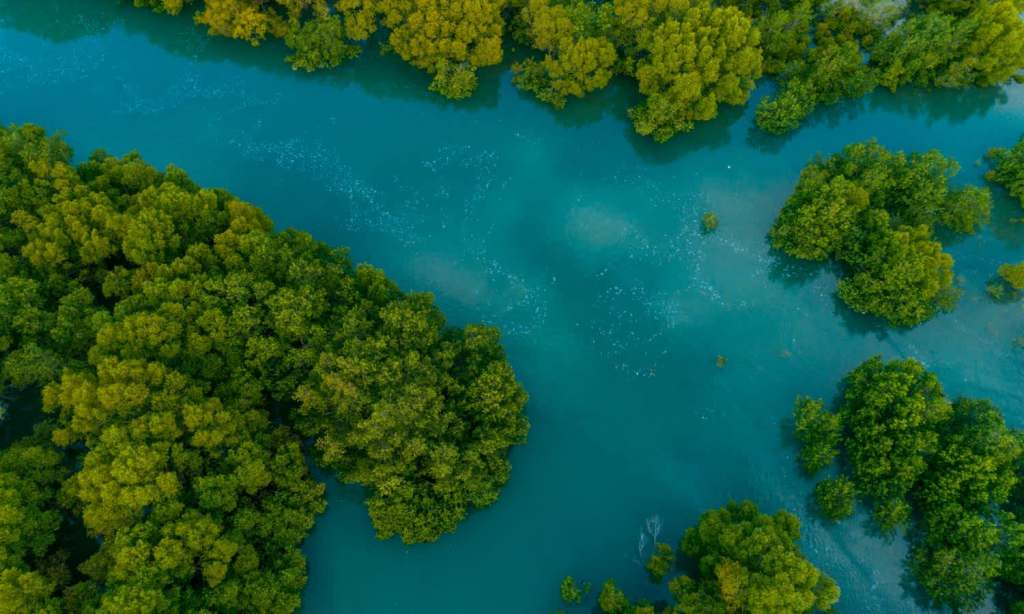The Latch has partnered with Suncorp Bank to deliver the sustainability content you need, from figuring out what your carbon footprint is and how to offset it.
Let’s start by answering the big question: what exactly is carbon offsetting? This is the process of counterbalancing the amount of carbon dioxide and greenhouse gases (GHG) a person or entity has directly or indirectly produced by contributing to reduce these emissions in environmental projects around the world.
In layman’s terms, this could mean for all the car rides you take annually in Australia, you could calculate your carbon footprint, and purchase carbon offset credits by planting mangrove trees in Indonesia.
Carbon offsetting is usually linked to reforesting and planting trees. However, there are many other ways you can do carbon offsetting. Like through the production of solar power, and hydropower, capturing methane gas at landfills, and purchasing clean cookstoves that have a more immediate impact on people’s lives.

Clean cookstoves in particular directly translate to the livelihoods of families in developing countries who would have otherwise used wood, crop residues, dung, coal, and charcoal for cooking that have a negative impact on their health and environment.
How did this all start? In the 1980s, policymakers were straddling ways to overcome climate change happening at a different pace between developing and developed countries. The first Carbon Offset Project began with an American electric power company financing an agriforest in Guatemala to offset the carbon footprint of their coal-fired power plant in Conntercuit.
After this, during the 2005 Kyoto Protcol, the first and largest carbon offset program called Clean Development Mechanism was developed to allow developed countries to cost-effectively reduce their carbon footprint obligations by investing in environmental solutions in developing countries.

There are two broad levels at which carbon offsetting is offered in the market. One is a voluntary purchase by companies or consumers and the other is mandatory compliance schemes regulated in regional or national trade emission schemes managed by the European Union Trading Scheme and the World Bank Carbon Pricing Dashboard, which tracks which countries have implemented compliance offset programs and other carbon pricing instruments.
For the everyday man, what should we know about carbon offsetting? Does this really work, or is it just a sly greenwashing technique to guilt us into fixing the GHGs emitted on a daily basis? No, not really.
Our individual actions have a significant impact on the planet at large. Australia produces an average of 499 million tonnes of carbon dioxide a year, and CO2 emissions per capita are equivalent to 17.10 tons per person. Reports show that an average of 40 trees are needed to make up for one tonne of CO2. Those are the sobering numbers, which remind us to make a calculated decision about how carbon footprint.

As an individual, you could buy carbon offsets directly urging the purchase of big-ticket items, like flight tickets, organic vegetables, or even your energy bill. Additionally, many companies have pledged to offset the lifetime carbon footprint of products that they pass on to customers.
Despite the grand premise of reducing our carbon footprint, carbon offsetting has received tremendous criticism in the last decade. Some suggest that it is a temporary stop-gap solution versus a reliable long-term solution to fight climate change because of the transparency in the actual offsetting process, and the lack of focus on cutting emissions entirely.
Other criticism regarding carbon offsetting is linked to the ‘buy and forget’ mindset, where one could ‘atone’ for the ‘carbon sins’ immediately without seeing through the full impact of their actions in the wider world. It removes the active, mindful decision-making that comes with leading a low-carbon lifestyle.
The truth is that we may never get to a point of complete carbon neutrality because there are many overlapping decisions that result in bigger carbon footprints than our offsets. However, the continued commitment to reducing, reversing, and eliminating carbon will have a significant long-term impact on our planet.
Read more stories from The Latch and subscribe to our email newsletter.







